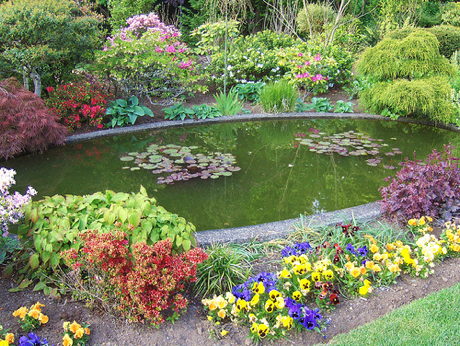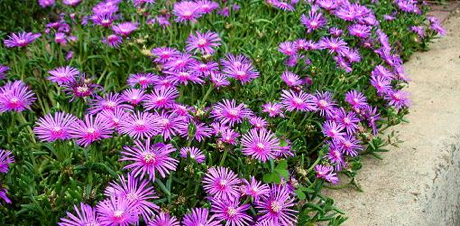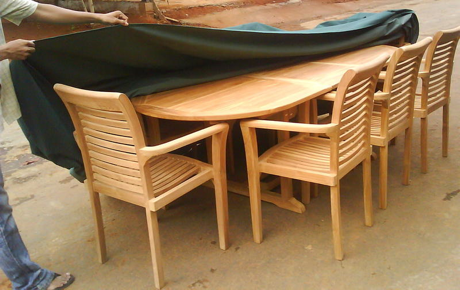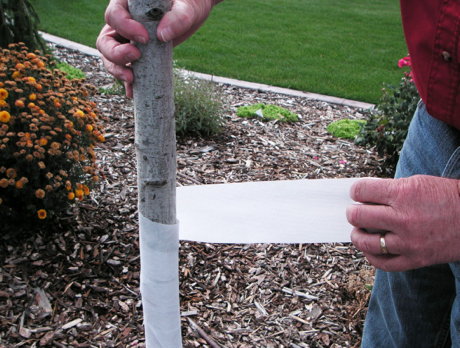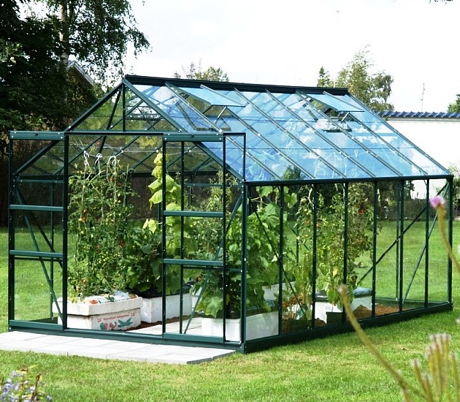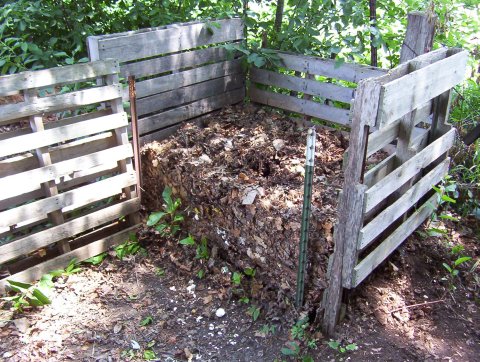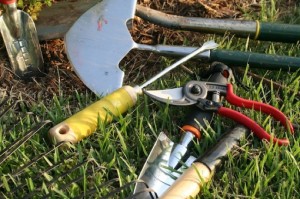September in many respects is one of the most important months of the year for many keen gardeners around the UK. The summer season is drawing to an end and it is time to start planning ahead for the longer nights, colder wetter weather and winter frosts beginning to bite the ground.
Having said that, the prospect of preparing your garden for autumn is a tremendously exciting one, so here at Bury Hill Landscape Suppliers we have put together autumn gardening tips for getting your garden ready for a change in the season.
Like most things in life, it’s better to get ahead of the game and start as early as you can – and the same is true of preparing your garden for the autumn / winter season. It’s important to give yourself plenty of time and get yourself and your garden organised.
10 Tips for Preparing your Garden for Autumn / Winter
1. Dig Up Those Annual Flowers
Quick and easy to grow, Annuals are fantastic for bringing vibrant colours and visual diversity to any garden in the UK. It may seem counter-productive to uproot up these plants that looked so good during the spring and summer months, but it needs to be done.
Annuals are great for a single season, but tend to struggle in the winter months and can be a real liability to maintain during Autumn. Get the most out of your Annuals by uprooting them just before the seasons turn and adding them to your compost pile.
2. Add Fertiliser to your Lawn
Why would you add fertiliser to your lawn? Do you need to add fertiliser to your garden’s lawn? All plants and lawns need good quality fertiliser or nutrients in order to maintain healthy growth. The majority of plants tend to absorb their nutrients through their roots, but you can give nature a helping hand by adding a good quality lawn fertiliser before your garden faces the autumn / winter season.
3. Cover Your Garden’s Pond
As long as your garden’s pond is a manageable size you should have any issues here. If it’s large and you’re unable to effectively maintain it during the winter months, it’s best to do a cleanse of leaves, gunk and other undesirable materials before it gets too cold. This will reduce the amount of clearing work you’ll have when spring comes around.
By covering your pond with a net you’re preventing the majority of autumn’s falling leaves from polluting the water. In severely cold weather, try to prevent the whole pond from freezing over to give any wildlife the best chance of survival during the winter months.
4. Cut Your Garden’s Perennials
Perennials will grow and survive almost all-year round. Surviving ground frost and growing like it’s nobody’s business. To some they can be a pain, so it’s important to cut them back ahead of the winter to prevent your garden from being dominated by them.
Before winter kicks off just cut your Perennials back to soil level and dispose of all of the cuttings to prevent further growth in other areas of your garden.
5. De-Weed Your Garden
Weeds are a pain for most gardeners in the UK and if you don’t get them under control prior to the beginning of winter you could face a massive de-weeding job on your hands come springtime. Whether they’re populating your garden’s flowerbeds or lining the cracks between your patio pavement, make sure you attack those weed by removing them from the root. Weed-killer solutions are OK but using it against other plants will have a negative effect on them.
6. Cover Your Garden Furniture and Store Your Tools
It’s important to keep your tools in a safe, dry and secure place all year round anyway, but never more so in winter when the wet and cold weather can cause rusting and general deterioration to your, no doubt, expensive gardening gear.
Use covers to keep your garden furniture safe from the elements as well. Unless you’re using it every other day it’s not such a big deal to remove the cover when you need to use your outside furniture. Better to keep it looking in top condition by covering it during the months where the weather can have a detrimental effect on it.
7. Sow Cover Crops into your Soil
A cover crop is essentially used to manage and hopefully reduce the amount of soil erosion, its quality, fertility, diseases and other negative problems your garden may experience during harsh winters. Cover crop growers can reduce the pressure on some herbicides, potentially, and reduce fertiliser costs, while also increasing the organic matter content and structure of the soil.
Need a couple of ideas? Annual ryegrass, winter legumes (winter peas, vetch) and oats will all do a very good job indeed.
8. Protect Young Trees and Plants
Just like us, young trees need plenty of attention and protection as they grow. This is particularly true during the winter months when the weather takes a turn for the worse. Start off by getting a few rolls of tree-guarding wraps to protect the trunks.
Click here for more information on how to effectively protect young trees during winter.
9. Organic Compost & Mulching
Give your garden beds a few inches of compost all over and finish off the process by adding a later of mulch. This effective strategy ensures your lot is given appropriate protection from rodents in addition to plenty of nutrients.
10. Keep an Eye on Those Roots
Novice gardeners often make the mistake of removing plants completely, including the roots. The preferred method is to cut the plant at the surface, giving the roots the chance to aerate your garden soil.
Extra Tips for Maintaining your Garden in Winter:
1. How to Maintain Your Greenhouse
For many UK gardeners the greenhouse is an essential part of their garden, sheltering the more fragile and exotic plants from the sometimes harsh British climate and accelerating the growth of others. It is always wise to give your greenhouse a bit of tender loving care a few times a year, especially ahead of the winter season taking hold.
As much as anything else, you will need to give the glass panels a good clean to remove any dirt or grime that could potentially block the flow of sunlight hitting your plants. Due to there being less sunlight to work with during the winter, you will want to ensure that you get the most out of what is available. Similarly, you will want to ensure that any overgrown trees that could possibly put your greenhouse in the shade are trimmed back.
2. Emptying Your Compost Containers
No doubt you will be adding plenty to your compost bins, as you make provisions around your garden for the onset of winter. The autumn months are the perfect time of year to use all the compost you have collected over the preceding months.
As we all know, compost is an invaluable resource to use around the garden, so use it generously and give what is left in your bins a little stir, so that the decomposition process occurs faster. If there is one golden rule of gardening, it is that you simply cannot ever have too much compost.
3. Look After Your Gardening Equipment & Tools
Autumn is the perfect time of year to give your garden equipment a general health check and service where required. Should anything need to be replaced, you can strike while the iron is hot and head down the garden centre to fetch some replacements. Give your lawn mower a service to ensure it is in crisp working order for when you next need it.
You may also wish to check your shears and trimmers to ensure they are still sharp enough to do an effective job of keeping the garden in check. Same goes for forks, spades and rakes etc. Give them a clean if they need it and take time to ensure they have not been subjected to the onset of any rust. It would also be wise to apply some oil both to the wooden parts of your manual tools and also to the moving parts of your electronic machinery.
To purchase high quality topsoils and other landscaping and gardening supplies please contact us on 01306 877540 or visit our online store.


